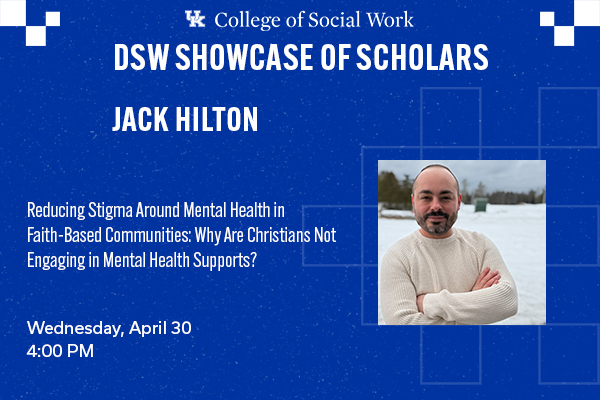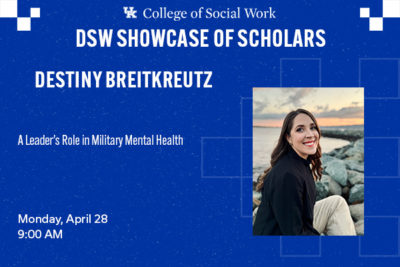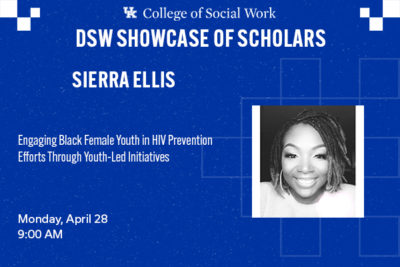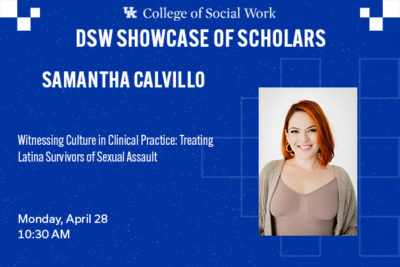DSW Candidate – Jack Hilton, 4:00 PM-5:15 PM
$0.00
Virtual Showcase of DSW Scholars 2025 Event!
Reducing Stigma Around Mental Health in Faith-Based Communities: Why Are Christians Not Engaging in Mental Health Supports?
DSW Candidate – Jack Hilton, LCSW, CTP-II
Wednesday, April 30, 2025
4:00 PM-5:15 PM Eastern Time Zone
Credit Hours: 1.0 (ACE)
Description
Reducing Stigma Around Mental Health in Faith-Based Communities: Why Are Christians Not Engaging in Mental Health Supports?
Mental health stigma within Conservative Christian communities creates substantial barriers to seeking professional care, particularly for individuals experiencing serious mental illnesses (SMIs). Rooted in doctrinal beliefs and cultural norms, this stigma often portrays mental health struggles as spiritual failings, leading many to rely on pastoral care over clinical interventions. This Capstone Project synthesizes findings from a systematic literature review (SLR), conceptual exploration, and practical application to address the reluctance of Christians to engage in mental health supports.
The project identifies key themes, including the role of clergy, religious beliefs, and social stigma, in shaping mental health perceptions within these communities. By integrating Transpersonal and Hope theories alongside Internal Family Systems (IFS), this project proposes a holistic framework for reducing stigma and bridging the gap between spiritual care and mental health services. Transpersonal theory aligns therapeutic interventions with spiritual resilience, while Hope theory emphasizes optimism and goal-directed behavior. IFS provides tools to address internal conflicts, fostering self-compassion and reconciling faith-based identities with mental health needs.
The Capstone emphasizes the importance of culturally competent social work interventions, training clergy in mental health literacy, and fostering collaborative partnerships between clinicians and faith-based organizations. These strategies ensure mental health care is theologically aligned, culturally sensitive, and accessible to Christians with SMIs, ultimately reducing stigma and promoting holistic well-being.
Learning Objectives:
Upon completion of this conference, participants will be able to:
- Understand the Impact of Mental Health Stigma: Participants will be able to explain how stigma within Conservative Christian communities influences individuals’ willingness to seek professional mental health care.
- Identify Barriers and Key Themes: Participants will be able to identify the barriers to mental health support within faith-based communities, including the role of clergy, cultural norms, and religious beliefs.
- Apply Integrated Theoretical Frameworks: Participants will be able to describe how Transpersonal Theory, Hope Theory, and Internal Family Systems (IFS) can be applied to reduce stigma and enhance mental health interventions for Conservative Christians with serious mental illnesses. Develop Culturally Competent Interventions Participants will be able to evaluate strategies for integrating culturally sensitive and spiritually aligned interventions into social work practice, including collaboration with clergy and faith-based organizations.
Delivery Method: Live Interactive Training via Zoom Video Conferencing
Credit Hours: 1.0 (ACE)
Target Audience: This conference is intended for social workers and students.
Accreditation: University of Kentucky College of Social Work, Provider # 1377, is approved as an ACE provider to offer social work continuing education by the Association of Social Work Boards (ASWB) Approved Continuing Education (ACE) program. Regulatory boards are the final authority on courses accepted for continuing education credit. ACE provider approval period: 9/29/22-9/29/25. Social workers participating in this conference will receive up to 15 general continuing education credits.
Claiming CE Credit: Instructions for claiming CE credit will be disseminated at the beginning of each session.
Questions: If you have any questions regarding CE credit or to report a grievance, please contact Christina Krantz at Christina.Krantz@uky.edu. For technical assistance, please contact lmshelp@uky.edu.
Disclaimer: The views and opinions expressed in these presentations are those of the individual presenters and do not necessarily reflect the official policies or positions of the University of Kentucky or the College of Social Work. The inclusion of any topics, perspectives, or discussions is intended for academic engagement and does not constitute endorsement by the institution.



